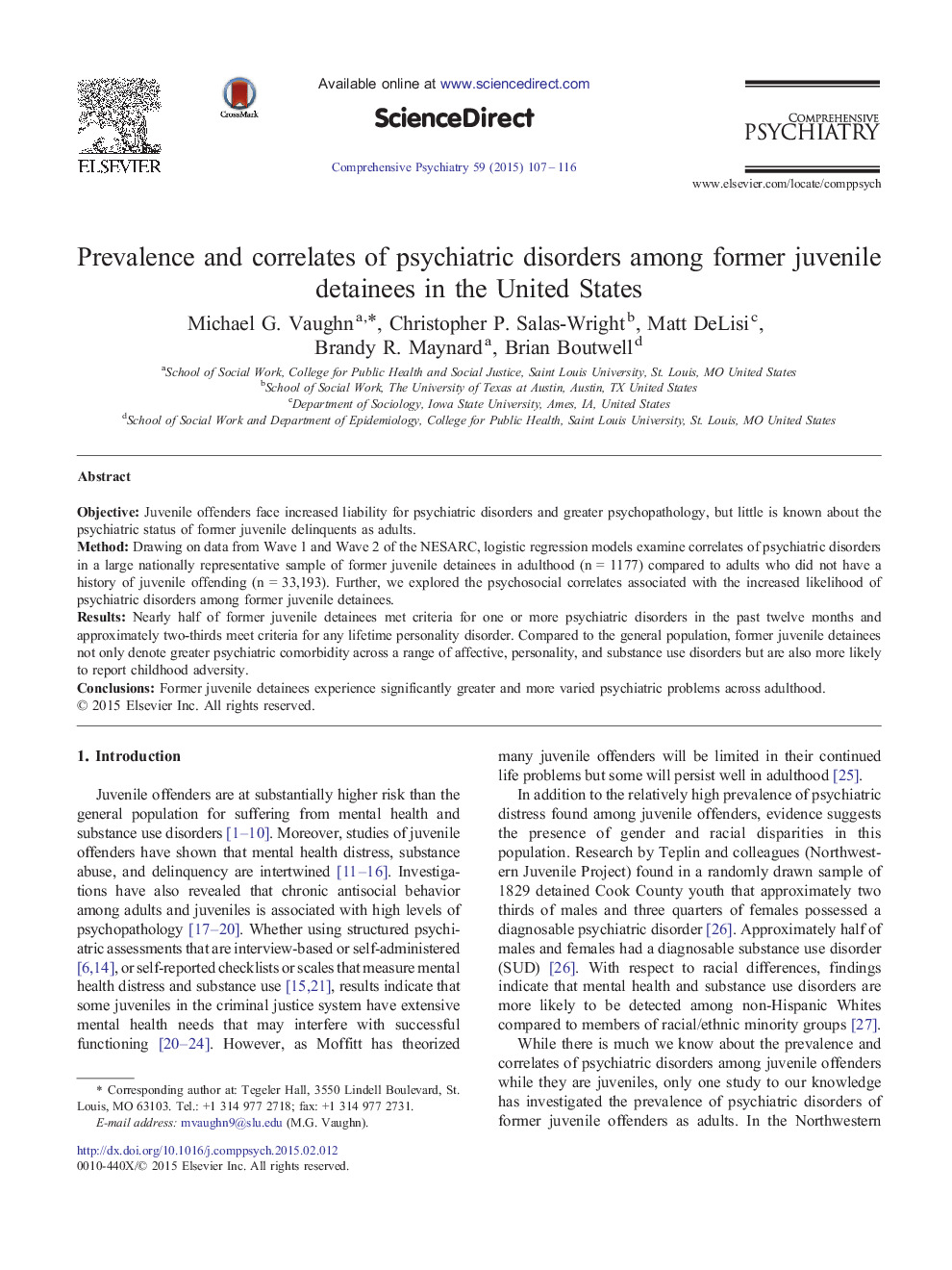| Article ID | Journal | Published Year | Pages | File Type |
|---|---|---|---|---|
| 316291 | Comprehensive Psychiatry | 2015 | 10 Pages |
ObjectiveJuvenile offenders face increased liability for psychiatric disorders and greater psychopathology, but little is known about the psychiatric status of former juvenile delinquents as adults.MethodDrawing on data from Wave 1 and Wave 2 of the NESARC, logistic regression models examine correlates of psychiatric disorders in a large nationally representative sample of former juvenile detainees in adulthood (n = 1177) compared to adults who did not have a history of juvenile offending (n = 33,193). Further, we explored the psychosocial correlates associated with the increased likelihood of psychiatric disorders among former juvenile detainees.ResultsNearly half of former juvenile detainees met criteria for one or more psychiatric disorders in the past twelve months and approximately two-thirds meet criteria for any lifetime personality disorder. Compared to the general population, former juvenile detainees not only denote greater psychiatric comorbidity across a range of affective, personality, and substance use disorders but are also more likely to report childhood adversity.ConclusionsFormer juvenile detainees experience significantly greater and more varied psychiatric problems across adulthood.
